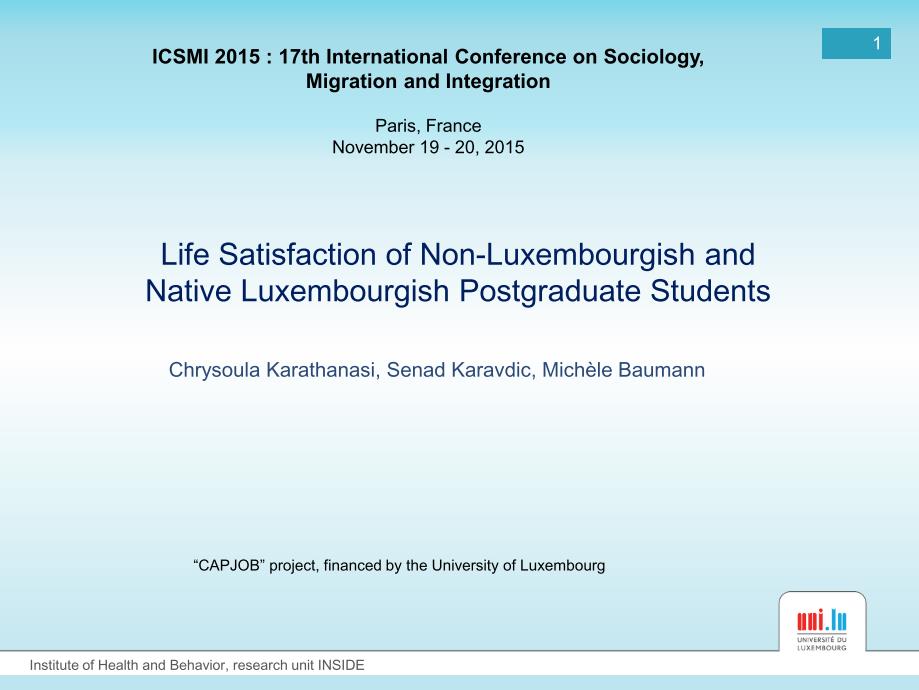Life satisfaction (LS) is a potential key to social progress and contributes to the functioning of individuals. In Luxembourg, the postgraduates who receive financial aid from the government are registered at the Centre for Documentation and Information on Higher Education. In order to obtain the financial aid, one of the criteria dictates that one of the parents of foreign students should have been working in Luxembourg for at least 5 years. In this country, which is built on migration (46% of the resident population consists of foreigners), is the basis on which our scientific questions are raised: (1) between non-Luxembourgish and native Luxembourgish students is the LS different? (2) What respective relationships exist with mental health-related factors, career attributes, socio-economic characteristics, and LS? (3) What are their associations of mental health (health satisfaction, psychological quality of life, worry), perception of financial situation and career attributes (adaptability, optimism, knowledge, planning) on LS? Between 2012 and 2013, 644 postgraduates were contacted by post to complete an online questionnaire in English or French. Foreign postgraduates who are settled in Luxembourg (born in Luxembourg and did not have the Luxembourgish citizenship, N=147) and native students (born in Luxembourg and had the nationality, N=284), were compared. Postgraduates who were born in Luxembourg but did not have the citizenship or were not born in Luxembourg and had the Luxembourgish citizenship were excluded. A single item measured LS (1 = not at all satisfied to 10 = very satisfied) same as in the European quality of life survey. Bivariate tests, correlations and multiple linear models were used, in which only significant relationships (p< 0.05) were integrated. Between the two groups, no differences exist between LS’ indicators (7.8/10 non-Luxembourgish; 8.0/10 natives), both of which is higher than the European indicator 7.2/10 (for 25-34 years). However, non-Luxembourgish students are older than natives are (29.3 years vs. 26.3 years), perceive their financial situation as more difficult, and a higher percentage of their parents have an education level higher than a Bachelor's degree (father 59.2% vs 44.6% for natives; mother 51.4% vs 33.7% for natives). In addition, father’s education is related to postgraduates’ LS and the higher is their level, the greater is their contribution to LS. Whereas for the native students, the better their health satisfaction, and career optimism is, the higher their LS are. For the both group, mental health-related factors, perception of their financial situation, career optimism, adaptability, and planning are linked to LS. The higher their psychological quality of life is, the better is their LS. Good health and favourable attitudes related to the job market enhance their LS.
Life satisfaction between non-luxembourgish and native luxembourgish pstgraduate students
Zitiervorschlag
Karathanasi, C., Karavdic, S. & Baumann, M. (2015). Life satisfaction between non-luxembourgish and native luxembourgish pstgraduate students. World Academy of Science, Engineering and Technology. 17th International Conference on Sociology Migration and Integration (ICSMI), Paris.


